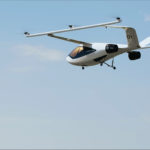Pratt & Whitney is gearing up for a sustainable future with projects testing alternative fuels and pioneering revolutionary technology to reduce carbon emissions, the company’s Chief Sustainability Officer, Graham Webb, has said.
From the revolutionary GTF engine family, to advanced hybrid-electric systems, Pratt & Whitney are developing technologies to make aircraft fly more efficiently and with lower emissions.
The company is also preparing aircraft engines for the transition to Sustainable Aviation Fuels, and developing technologies for hydrogen-fueled propulsion systems, which will be key to a net zero future for aviation.
16 per cent improvement in fuel burn
Commenting on Pratt & Whitney’s ‘Sustainability starts with the gear’ initiative, Webb said: “Sustainability starts with a gear is associated with our revolutionary gear-turbofan engine, which has a new technology called a fan-drive gear system.
“[That is] a very high powered, lightweight gear that is inserted in between the fan module and the turbo machinery. It enables the fan to turn slowly and the turbo machine to operate at optimal speeds and has delivered a 16 per cent improvement in fuel burn.”
Webb said Pratt & Whitney had also been working with the Commercial Aviation Alternative Fuels Initiative (CAAFI) since 2006, “developing different types of sustainable aviation fuel feedstocks and ensuring their capability with both the aero engines and the aircraft. It has enabled us to release seven different blend feedstocks.”
100% SAF
He said work would continue to move from 50 per cent SAF blends to 100 per cent blends.
Webb added: “Hydrogen is a very important element, not only as a primary fuel source but also a feedstock for potential power to liquid fuels. We view green electricity to meet green hydrogen as a key enabler for the aviation industry total roadmap to net zero by 2050.
“From what I can see today, the industry has coalesced together and is collectively moving in the direction towards achieving net zero. It is going to require a wide variety of tools in our toolbox.”

